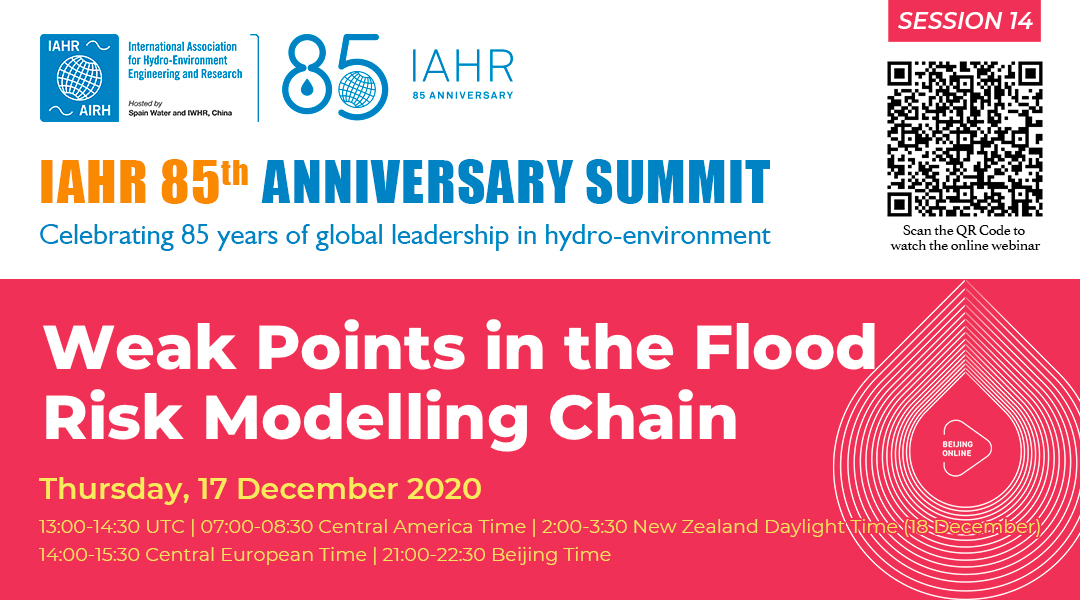Weak Points in the Flood Risk Modelling Chain - IAHR 85th Anniversary
« Back to list of video collections

In terms of human suffering, economic costs and damage to cultural and environmental heritage, inland and coastal floods have impacts increasing yearly worldwide. This must mean that we are far from properly predicting and managing flood risk. On the one hand, we are faced by the occurrence of more extreme climate-related events, transformations of rural landscapes and unsustainable urban population growth, which continuously changes the boundary conditions at which flood risk models must be adapted to deliver reliable results. On the other hand, our efforts are frustrated by limitations in our modelling capabilities. Both reasons lead to the introduction of a significant uncertainty in flood risk estimation. As a consequence, flood risk management is clearly a demanding job, in practice often leading to inefficient solutions.
In response to these problems, the IAHR Technical Committee on Flood Risk Management is launching an initiative on “Weak Points in the Flood Risk Modelling Chain” with the objective of seeking IAHR community contributions on:
identification of weak points/limits in the flood risk modelling chain
tools, best practices, bench mark data sets and case studies that could support our researcher and practitioner communities in dealing with those shortcomings.
All collected contributions and material will finally be made available to all IAHR members to increase the awareness on the weak points in the flood risk modelling chain, but also to support our researcher and practitioner communities as well as authorities for problem–solving in practice.
In a webinar, three eminent members of the committee, namely Alastair Barnett (chair), Marian Muste (past chair) and Daniela Molinari (vice chair) pointed out in their keynote speeches three of these weak points, with particular reference to: discharge estimation, monitoring unsteady flows and damage modelling. This collection is the videos of these speeches. The webinar is also one of the many sessions of the IAHR 85th Anniversary Summit, which was organized during December 14-17, 2020 both in Beijing, China and online.